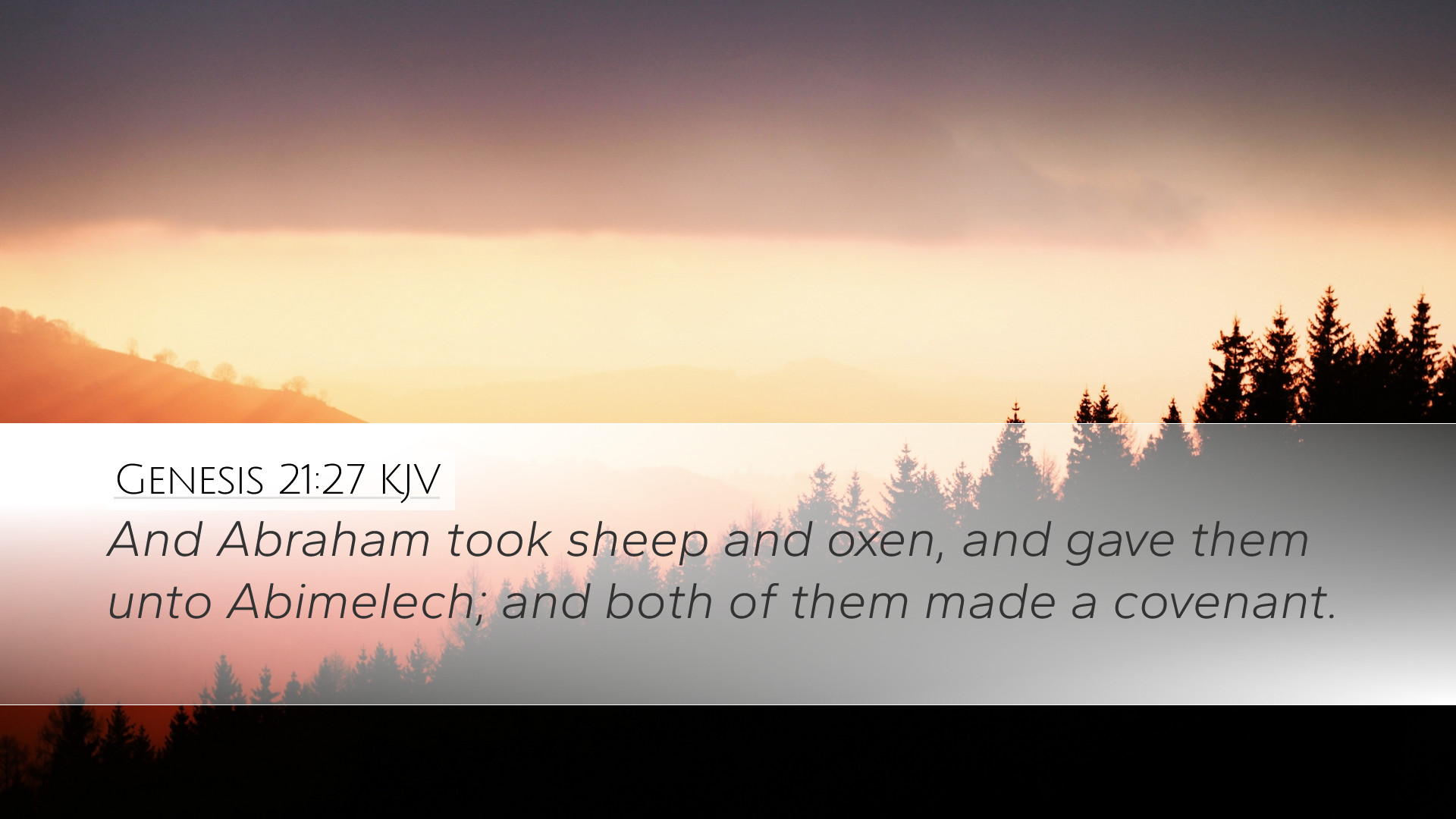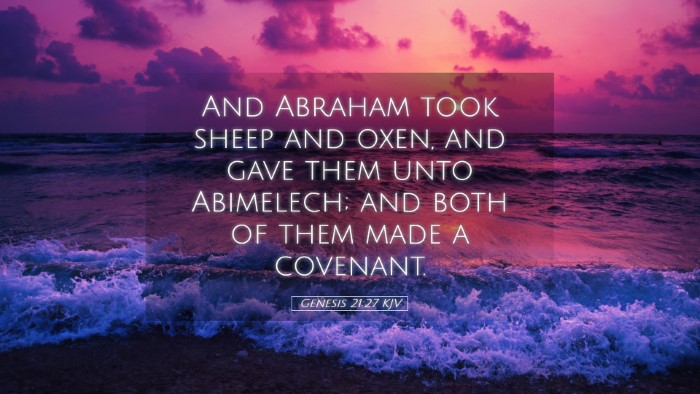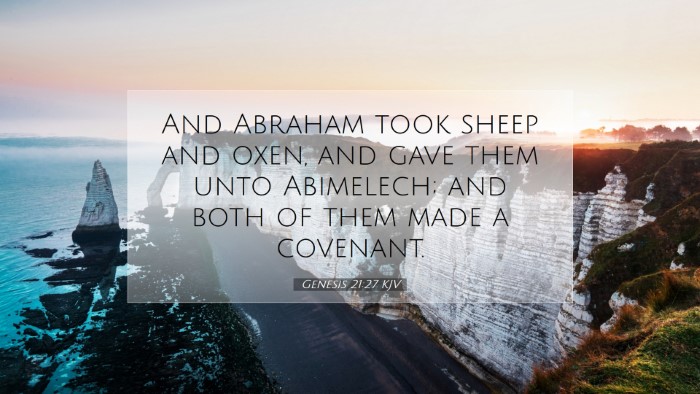Genesis 21:27: "And Abraham took sheep and oxen, and gave them unto Abimelech; and both of them made a covenant."
Overview of Genesis 21:27
This verse encapsulates a significant moment in the relationship between Abraham and Abimelech, serving as a profound illustration of covenant-making and the importance of establishing peace in Biblical narratives. Here, Abraham offers sheep and oxen to Abimelech, symbolizing goodwill and the seriousness of the covenant they are about to enter.
Commentary from Matthew Henry
Matthew Henry emphasizes that Abraham’s action of offering livestock indicates a formal undertaking of a covenant. He observes that by giving these gifts, Abraham demonstrates his respect for Abimelech, acknowledging his authority and the importance of maintaining peaceful relations. Henry notes that this act foreshadows the solemnity and significance associated with covenants in the ancient Near East.
Insights from Albert Barnes
Albert Barnes highlights the cultural context of the covenant and the gifts exchanged. He explains that in ancient times, such offerings were traditional and represented both a stipulation and a guarantee of the agreement. His commentary showcases the idea that these animals were not merely gifts but served an essential role in the covenant process, signaling the intent to engage in a binding agreement characterized by mutual respect.
Reflections from Adam Clarke
Adam Clarke provides a detailed examination of the specifics of what Abraham presented to Abimelech. He discusses how the selection of sheep and oxen was deliberate, as these animals were valuable commodities in Abraham's time. Clarke notes that this transaction not only reinforces Abraham’s integrity but also signifies the importance of transparency and fairness in relationships. By his actions, Abraham asserts a commitment to peace and righteousness.
Theme of Covenant in the Scriptures
The act of making a covenant, as seen in Genesis 21:27, resonates deeply throughout Scripture. Covenants are foundations of relationships in the Bible, signifying more than mere agreements; they are sacred commitments that reflect God’s unchanging nature and faithfulness. This passage illustrates that Godly relationships are characterized by mutual promises and care for one another’s well-being.
Application for Today’s Believers
- Understanding Relationships: Just as Abraham approached Abimelech with a willingness to establish peace, modern believers are called to pursue healthy and respectful relationships that reflect God’s character.
- Covenant with God: Believers today are part of a new covenant established through Christ. This covenant emphasizes grace, love, and mutual commitment, urging followers to embody these principles in their interactions.
- Exemplifying Integrity in Promises: Abraham’s actions call for believers to be men and women of their word, embodying integrity and honor in commitments, reflecting God’s faithfulness in all aspects of life.
Conclusion
The significance of Genesis 21:27 transcends mere historical narrative; it lays a foundation for understanding the nature of covenants and the importance of relationships grounded in faithfulness, respect, and integrity. As believers engage with this text, they are reminded of their commitment to God and to one another—anchored in the model of covenant love demonstrated by Abraham and Abimelech.


